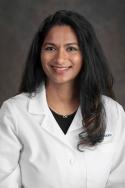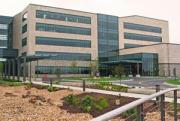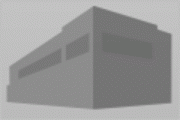Structural Heart Program
The structural heart program offers advanced surgical options such as transcatheter aortic valve replacement (TAVR), transcatheter mitral valve repair with MitraClip, left atrial appendage occlusion with Watchman procedure, PFO/ASD closure, VSD closure, and alcohol septal ablation.
What is structural heart care?
Structural heart care works to address problems of the structure of the heart itself. That includes diseases and conditions which involve the walls and chambers that make up the heart, as well as the valves within that control blood flow. Think of the heart like the engine of the body. Much like an automobile with engine trouble, a person with heart trouble can face severe symptoms and even death. Problems related to the heart’s structure can have major impacts on a person’s physical health and ability, making local access to advanced heart care a necessity. These conditions previously were only able to be treated with open heart surgery.
What conditions are treated by a structural heart program?
Some conditions which are typically seen in structural heart programs include, but are not limited to:
- Holes in the walls between chambers of the heart
- Heart valve disease, including narrowing valves or valves that do not close correctly, causing leakage and blood flow in the wrong direction
- Changes in the structure of the heart due to rhythm disorders, such as atrial fibrillation
Structural heart care is usually accomplished using a catheter-based approach. In our state-of-the-art catheterization lab, specially trained and qualified medical personnel and physicians work to treat our patients. Using a small incision, a catheter is inserted into the femoral artery or vein (near the groin). This catheter is then threaded up to the heart. Once in the heart, the catheter is used to treat the problem, thanks to a wide variety of attachments and devices that are now available.
Why offer this care?
Nationally, heart disease is the top cause of death. With people living longer lives than ever before, hospitals and physicians are seeing patients with more advanced heart problems. Some of these patients may not be good candidates for surgical procedures, which is where structural heart care comes in. Using minimally invasive, catheter-based techniques, we can often improve or resolve heart problems and then send patients home the same day or next day.
Very commonly, patients with advanced heart problems are not healthy enough to undergo surgery and are unable to travel to larger cities for this level of care. Owensboro Health’s mission is to heal the sick and to improve the health of the communities we serve. In keeping with that mission, we are working to make this type of heart care available and accessible to patients throughout this region. Our goal is to make it possible for them to receive advanced heart care close to their homes, families, loved ones and their systems of support.
How can I find out if the structural heart program can benefit me?
If you would like to know more about the Structural Heart Program, talk to your primary care provider for a referral to a cardiologist. If you are already seeing a cardiologist, they can answer questions and help determine if you are a good candidate and qualify for care in the Structural Heart Program.




